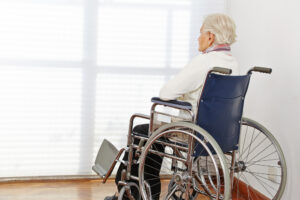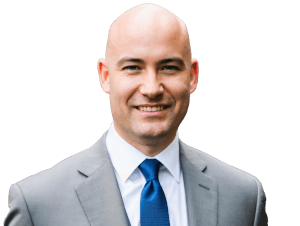
Typically, you have two years to file a nursing home abuse claim in Georgia. This time limit begins either from the date the injury occurred or when it was discovered. If the abuse caused the resident’s death, the statute of limitations for a wrongful death claim is two years from the date of death.
Some exceptions can alter this timeframe. If the facility is government-owned, you may need to file a claim sooner. The time limit may be extended in cases where the victim is mentally incapacitated, the harm was not immediately obvious, or the facility hid the abuse.
Missing the deadline can prevent you from pursuing legal action, so speak with an elder law attorney when you suspect abuse. Our Georgia nursing home abuse lawyers have recovered millions for victims and their families. Call today to schedule a free consultation.
Do You Need a Lawyer to File a Nursing Home Abuse Claim in Georgia?
While you are not legally required to do so, hiring a lawyer to file a nursing home abuse claim in Georgia is a smart move. Nursing home abuse cases often involve complex legal issues, medical records, expert witnesses, and strict procedural rules.
Our elder law attorneys are experienced in abuse cases and can help you gather evidence, prove liability, and understand Georgia’s legal system. When it comes time for a settlement, we can negotiate with insurance companies or the nursing home’s legal team.
Without knowledgeable legal representation, it can be difficult to present a strong case, which may result in a dismissed case or denied claim.
What Are the Signs of Nursing Home Abuse?
If you have a loved one in a nursing home, it is important to remain watchful for abuse. In general, look for changes in their physical or emotional condition, or if they seem fearful around certain staff or resist speaking in their presence. Additionally:
- Signs of physical abuse can include unexplained cuts, bruises, or broken bones.
- Behavioral changes such as fear, withdrawal, depression, or aggression may indicate emotional or psychological abuse.
- Poor hygiene, dehydration, rapid weight loss, or frequent bedsores can be signs of neglect.
If you suspect nursing home abuse, you can make a report to the Healthcare Facility Regulation Division of the Georgia Department of Community Health. They can follow up on your report and take action against the facility or individual employees if necessary.
How Can You Prove Nursing Home Abuse?
Staff members who abuse nursing home residents can face criminal charges, but your claim will seek damages in civil court. Your attorney will need to provide evidence that the facility or staff failed to meet a legal duty of care and that this failure directly caused harm.
This evidence may include medical records, photographs of injuries, expert medical opinions, eyewitness testimony, surveillance footage, and incident reports. Documentation of prior complaints, police reports, or regulatory violations may support your case.
Your lawyer will collect and organize this evidence, ensure it’s admissible in court, and build a strong argument to prove your abuse allegations. You can help by documenting what you saw or taking photos.

Can a Nursing Home Kick You Out if You Sue Them in Georgia?
No, a nursing home cannot legally evict a resident simply for filing a lawsuit or making a complaint. Such actions would be considered retaliatory and are prohibited under both Georgia law and federal regulations that protect nursing home residents’ rights.
However, a facility might attempt to justify a discharge for other reasons, such as nonpayment, medical needs they claim they can’t meet, or behavioral issues. Your attorney can challenge the discharge (if you wish) and ensure the facility respects your loved one’s rights.
You can also reach out to the ombudsman assigned to your facility. Ombudsmen are trained volunteers who advocate for nursing home residents. They can investigate and raise concerns if they believe your rights were violated.

What Is the Difference Between Neglect and Negligence?
When researching how long you have to file a nursing home abuse claim in Georgia, you may come across the terms negligence and neglect. It’s easy to confuse them, but they have distinct meanings, especially in the context of nursing home abuse.
- Neglect refers to the failure to provide necessities like food, hygiene, medication, or supervision, resulting in harm or increased risk of damage to a resident. It may be ongoing and can be either intentional or due to carelessness.
- Negligence, on the other hand, is a legal concept. It describes a failure to exercise the level of care that a reasonable person or facility would under similar circumstances, which results in injury or loss.
In nursing home abuse cases, neglect is often the conduct or omission, such as ignoring a resident’s medical needs, while negligence is the legal claim made based on that failure.
Get Help With Your Nursing Home Abuse Claim
How long you have to file a nursing home abuse claim is generally two years from the date of the incident. If the abuse resulted in death, the time frame for the statute of limitations is two years from the death of the resident.
If you suspect your loved one is the victim of nursing home abuse, don’t wait to file your claim. Contact Schenk Nursing Home Abuse Law today to schedule a free consultation and tell us about your concerns.





